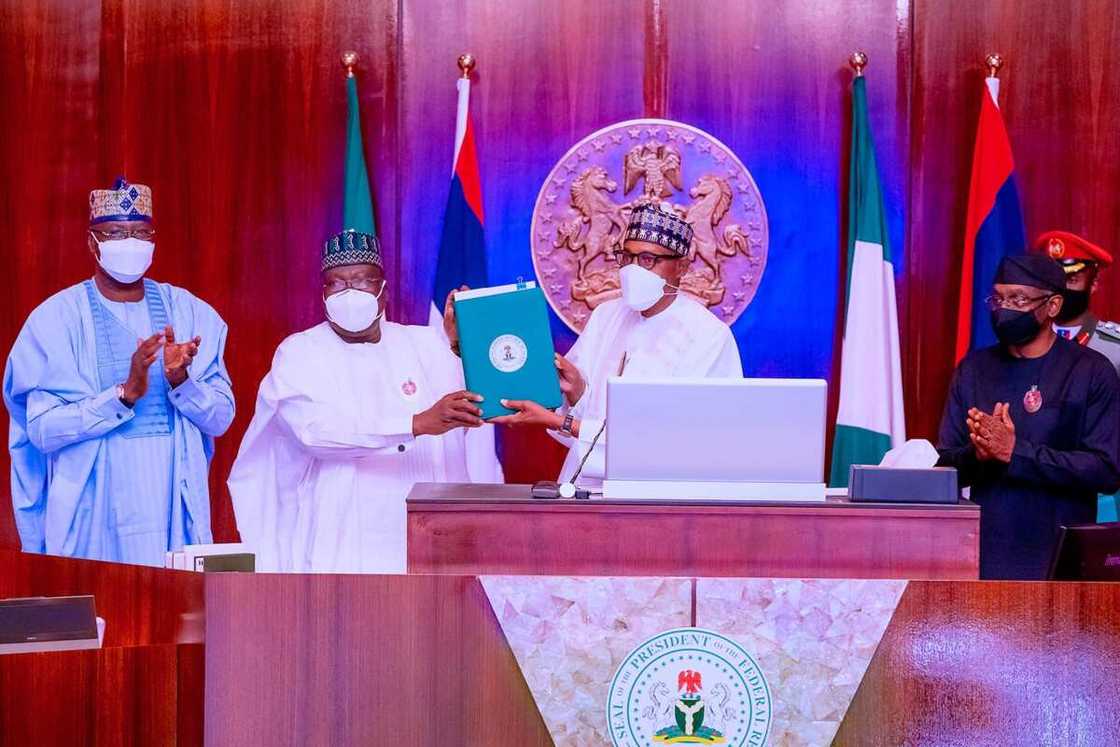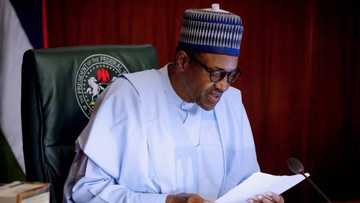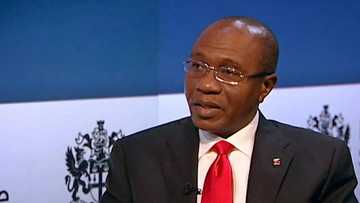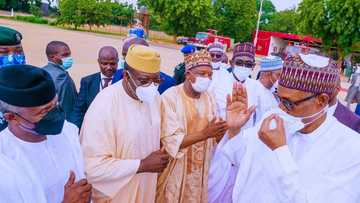Updated: Buhari Signs 2022 Budget to law, Plans to Spend all Oil Revenue on Debt Servicing
- President Muhammadu Buhari has signed the 2022 appropriation bill into law after the National Assembly made several changes
- The president also signed the 2021 finance bill into law at an event at the state house on Friday, 31 December 2021.
- Debt servicing for loans collected in the past is is one of the interesting numbers, including expected oil revenue
PAY ATTENTION: Click “See First” under the “Following” tab to see Legit.ng News on your Facebook News Feed!
The President, Muhammadu Buhari has signed into law the 2022 Appropriation Bill and the 2021 Finance Bill.
The President signed the documents in the Presidential Villa in the presence of Senate President Ahmed Lawan, Speaker of the House of Representatives, Femi Gbajabiamila, and other members of the Federal Executive Council.
Speaking at the event, the President said the 2022 Budget, just signed into law, provides for aggregate expenditures of N17.127 trillion, an increase of N735.85 billion over the initial Executive Proposal for a total expenditure of N16.391 trillion.

Source: Facebook
Do you have a groundbreaking story you would like us to publish? Please reach us through info@corp.legit.ng!
The President explained that N186.53 billion of the increase however came from additional critical expenditures that he had authorised the Minister of Finance, Budget, and National Planning to forward to the National Assembly.
The signing is coming less than a week after the house of representatives and senate passed the appropriation bill the cable reports
President worried with the changes from National Assembly
According to a statement from Senior Special Assistant to the President (Media & Publicity), Garba Shehu, after the signing he noted that President Buhari is not happy ‘‘worrisome changes’’ made by the National Assembly to the 2022 Executive Budget proposal.
He also revealed the president plans to write to the National Assembly for amendment as soon as the Assembly resumes.
Shehu added it is necessary to the amendments is done to ensure that critical ongoing projects cardinal to this regime do not suffer a setback due to reduced funding.
Part of the statement reads:
"The fiscal year 2022 would be very crucial in his administration’s efforts to complete and put to use critical agenda projects, as well as improve the general living conditions of our people.
‘‘It is in this regard that I must express my reservations about many of the changes that the National Assembly has made to the 2022 Executive Budget proposal.
‘‘Some of the worrisome changes are as follows:
One of the changes the president os not happy about is the increase in projected FGN Independent Revenue by N400 billion, the justification for which is yet to be provided to the Executive:
Others are:
‘‘Reduction in the provision for Sinking Fund to Retire Maturing Bonds by N22 billion without any explanation;
‘‘Reduction of the provisions for the Non-Regular Allowances of the Nigerian Police Force and the Nigerian Navy by N15 billion and N5 billion respectively. This is particularly worrisome because personnel cost provisions are based on agencies’ nominal roll and approved salaries/allowances;

Read also
Breakdown of Nigeria's borrowing plans for three years as President Buhari is set to leave behind N50trn debt
‘‘Furthermore, an increase of N21.72 billion in the Overhead budgets of some MDAs, while the sum of N1.96 billion was cut from the provision for some MDAs without apparent justification;
‘‘Increase in the provision for Capital spending (excluding Capital share in Statutory Transfer) by a net amount of N575.63 billion, from N4.89 trillion to N5.47 trillion.’’
More concerns
President Buhari also expressed concern in the reductions in provisions for some critical projects, including N12.6 billion in the Ministry of Transport’s budget for the ongoing Rail Modernisation projects.
Also the N25.8 billion from Power Sector Reform Programme under the Ministry of Finance, Budget and National Planning; N14.5 billion from several projects of the Ministry of Agriculture, and introducing over 1,500 new projects into the budgets of this Ministry and its agencies
Key numbers in the budget
- An aggregate expenditure of N17,126,873,917,692(N17.12trn)
- Debt servicing- N3,879,952,981,550 (N3.87trn)
- Recurrent expenditure- N6,909,849,788,737(N6.90trn)
- Capital expenditure- N5,467,403,959,863( N5.46trn)
- Oil revenue- N3.52trn
Railway, satellite lead list of 15 projects nigeria agreed N2.50trn loan with china
Meanwhile, the Debt Management Office (DMO) has announced Nigeria's overall public debt has risen to N38 trillion as of September 30, 2021.
The loan from China is one area many Nigerians are interested in amid stories of assets being seized from nations unable to repay their debt.
DMO has now released a thorough analysis of loans received from China in the last 13 years, including how much has been returned and for what projects the funds were obtained.
Source: Legit.ng





